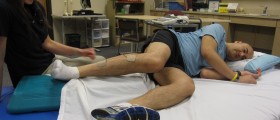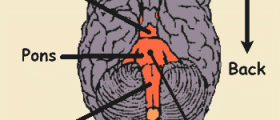
Peripheral Neuropathy
Peripheral neuropathy refers to a damage of the peripheral nervous system. Peripheral nerves innervate all the body organs and organ systems. They actually transmit the information from the brain and the spinal cord to specific area. These nerves also inform the brain and the spinal cord about everything that is going on in human body. Damage of these nerves consequently leads to interruption of theses signals which results in different functional and structural changes.
The symptoms of peripheral neuropathy depend on the nerves which are affected. This is why people tend to experience a variety of the symptoms and signs, and they are not all the same. Some patients may complain about numbness or tingling sensations in specific area while others may experience dysfunction of certain organs or even muscle paralysis. The problems may additionally include difficulties with digestion, variations in blood pressure and so on. The most serious form of peripheral neuropathy occurs if peripheral nerves that are in charge with breathing are affected. This condition can lead to difficulties with breathing or even respiratory failure.
If only one nerve is affected the condition is classified as mononeuropathy. This is rare and many patients actual suffer from polyneuropathy, a condition in which two or more nerves are damaged. Sometimes two or more remote nerves of different parts of the body are affected and in this case we talk about mononeuritis multiplex.
In the acute form of the disease the symptoms and signs occur suddenly, tend to progress rapidly and withdraw gradually. In chronic form of the disease symptoms are in the beginning subtle and they develop gradually. In certain number of patients neuropathy may feature with remission and occasional flare-ups. Neuropathy can be an isolated disease or may accompany some other medical conditions.
Symptoms of Peripheral Nerve Damage
The symptoms are determined by the nerve which is affected and may occur within days, months or several years after the onset of the disease. In case of motor nerve damage muscle weakness is the leading symptom. This is also accompanied by cramps and fasciculations. These changes may hurt or are painless. In advanced stages there is evident muscle loss, degeneration of the nearby bones and specific skin changes.
In sensory nerve damage symptoms vary a lot. Damage to large sensory nerves makes hard for people to register touch, vibration or position of the body. Numbness is almost always reported. Further damage leads to loss of reflexes. Inability to register position of the body results in uncontrollable movements, strange patterns of walking and impossibility for patients to maintain balance while standing in case that their eyes are shut. In case that small sensory fibers are damaged one may not feel burning sensations or pain and is prone to injuries. The disturbance in sensory nerves may even cause allodynia in which people report severe pain from stimuli that are generally painless.
Damage to autonomic nerves depends on the affected organ. It may feature with problems with breathing, changes in sweating patterns, loss of bladder or bowel control and variations in blood pressure. In case gastrointestinal autonomic nerves are affected a patient may complain about diarrhea, constipation and problems with eating or swallowing.











_f_280x120.jpg)





Your thoughts on this
Loading...